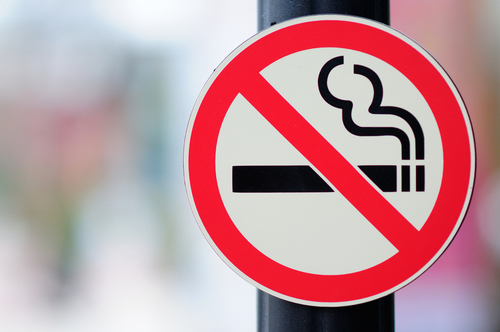 There is an urgent need to improve the delivery of brief smoking cessation advice and interventions to patients with lung cancer.
There is an urgent need to improve the delivery of brief smoking cessation advice and interventions to patients with lung cancer.
Data presented at the Australian Lung Cancer Conference showed health professionals are not consistently providing the Ask-Advise-Help model of smoking cessation as recommended in guidelines from the Clinical Oncology Society of Australia (COSA) and the RACGP. [links here and here]
Dr Brigitte Fischer, a basic physician trainee at Brisbane’s Prince Charles Hospital, told the conference that smoking cessation was a key part of cancer care that improves survival, postoperative outcomes, quality of life and treatment tolerance.
She said with treatment advances leading to a growing cohort of lung cancer survivors, the need for smoking cessation care will also increase.
“In accordance with COSA and RACGP guidelines, brief intervention smoking cessation care should be implemented in each and every clinical encounter,” she said.
“But despite compelling evidence that smoking cessation is hugely beneficial, this aspect of cancer care continues to be suboptimally delivered.”
Dr Fischer presented data from 725 consecutive patients newly diagnosed with lung cancer at the Prince Charles Hospital between January 2018 and December 2020.
The study population consisted of 211 patients (29%) who were currently smoking at the time of diagnosis and attended 1,295 outpatient encounters during the study period.
The study found asking about smoking status was documented in the patients’ medical records at only 39.5% of encounters.
Documentation that the health professional then provided advice on the benefits of quitting and on strategies to quit occurred at only 6.6% of encounters.
Similarly, helping the patient with referrals to a Quitline or for pharmacotherapy or behavioural therapy was documented in only 5.5% of encounters.
“Of note, our analysis found that coexisting COPD did not affect the likelihood of documentation of brief intervention smoking cessation care,” Dr Fischer said.
She said thoracic medicine clinicians documented smoking cessation care more frequently than others in the multidisciplinary team such as medical oncology, radiation oncology, thoracic surgery and palliative care.
“Patients therefore missed multiple opportunities to receive best practice care after being diagnosed with lung cancer.”
Dr Fischer said addressing the gap between available evidence for brief intervention smoking cessation in cancer care and current practice likely requires system level change.
“Smoking cessation brief interventions are a relatively simple, low risk and cost effective measure that can significantly improve patient survival and quality of life and health economic modelling support this system level practice change.”
She said a recent national survey of medical and radiation oncologists found most participants felt further training was needed in delivering smoking cessation care, while citing nihilism about the quit rates, patient resistance and lack of time as additional barriers.
Dr Fischer was the recipient of the Samantha Bladwell Award for the best contribution from an early-mid career researcher at the conference.